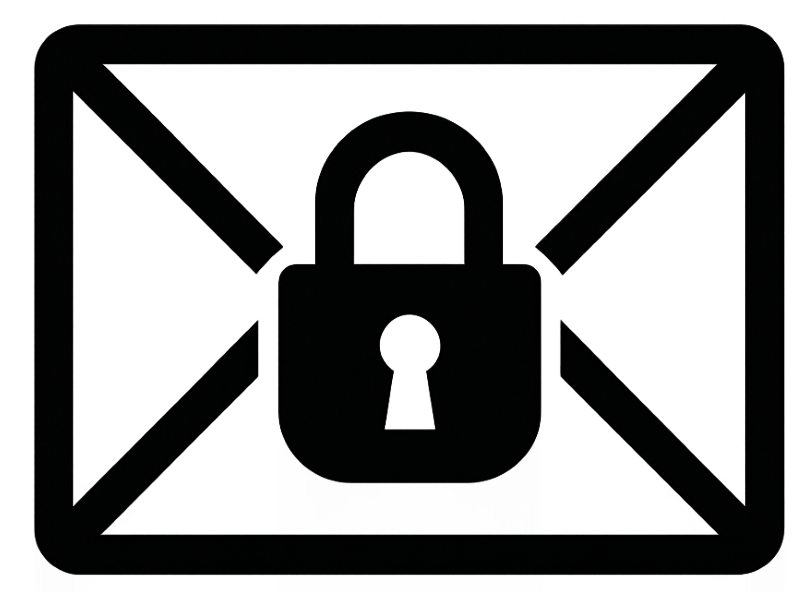Reading the Private Emails of a Spouse may be a Crime
If a person accesses their spouse’s private email without permission, the prosecutor may charge you with felony misuse of a computer.

You can face criminal charges for reading private emails even if you live in the same house.
You are not allowed to snoop through your spouse’s email. A couple of years ago, Leon Walker of Rochester Hills, Michigan, was charged with felony misuse of a computer because he accessed his wife’s email account. Mr. Walker thought his wife was having an affair and got into her email account to prove it. Once in the account, he printed out the email and gave copies to his wife’s first husband, who was in a custody battle with her. This case was initially dismissed. Over the years, it has been appealed several times, and the Michigan Court of Appeals has determined that Mr. Walker can be charged criminally for accessing his estranged wife’s computer. The bottom line is that reading another person’s private emails is a crime.
There is significant concern about this matter. Is it right to charge a person with a criminal offense when the family court should address the issue? What if a spouse claims a joint email is private and makes a false allegation of intrusion?
Using Someone Else’s Email Can Constitute a Felony
The willful and malicious, unauthorized use of someone else’s email, electronic messages, computer, or cell phone is a felony punishable by up to two (2) years in prison, five (5) years of probation, and substantial fines and costs. Under Michigan law, people are prohibited from willfully and maliciously cutting, breaking, disconnecting, interrupting, tapping, or connecting to someone else’s electronic messages. Additionally, it is illegal to read or copy another person’s message from a computer, cell phone, telephone line, telegraph, cable, system, or network without authorization. Finally, it is illegal to maliciously and knowingly block or delay the conveyance of another person’s message or communication.

Felony Access to Private Email – Terms and Definitions
The law defines the following words as follows:
(a) “Computer” means any connected, directly interoperable, or interactive device, equipment, or facility that uses a computer program or other instructions to perform specific operations, including logical, arithmetic, or memory functions with or on computer data or a computer program and that can store, retrieve, alter, or communicate the results of the operations to a person, computer program, computer, computer system, or computer network.
(b) “Computer network” means the interconnection of hardwire or wireless communication lines with a computer through remote terminals or a complex consisting of two (2) or more interconnected computers.
(c) “Computer program” means a series of internal or external instructions communicated in a form acceptable to a computer that directs the functioning of a computer, computer system, or computer network in a manner designed to provide or produce products or results from the computer, computer system, or computer network.
(d) “Computer system” means a set of related, connected, or unconnected computer equipment, devices, software, or hardware.
(e) “Internet” is defined in section 230 of Title II of the Communications Act of 1934, 47 USC 230, and includes voice-over internet protocol services. Reading private emails or text messages via the internet on phones, computers, or any devices is a crime.
Just Like Emails, Reading or Viewing Private Texts and Messages is a Crime
In Michigan, the legality of accessing and reading private electronic communications, such as emails, text messages, SMS messages, or other forms of digital communication, hinges on issues of authorization and consent. Generally, willfully and maliciously reading someone else’s private electronic communications without their permission is illegal. This crime is grounded in laws that protect the privacy and confidentiality of electronic communications.
Key points to consider include:
- Authorization: Accessing someone else’s private communications is typically illegal without authorization. If an individual accesses another person’s emails, texts, or other messages without their consent, it can be considered a violation of privacy laws.
- Federal and State Laws: Both federal and state laws address unauthorized access to electronic communications. For instance, the Electronic Communications Privacy Act (ECPA) at the federal level and Michigan Penal Code §750.540 prohibit unauthorized access to electronic communications.
- Intent: The intent behind accessing the messages can also be significant. Willful and malicious actions, meaning done intentionally and with ill intent, are more likely to be considered criminal.
- Nature of the Communications: Privacy expectations are another aspect. Communications that are considered private and confidential, like personal emails or text messages, are more protected under the law.
- Context of Access: The circumstances under which the accused accessed the messages also matter. For example, accessing messages on a shared family device may be viewed differently from hacking into someone’s personal phone.
- Cybersecurity Laws: Computer trespass or cybersecurity laws may also apply, especially if accessing the messages involves bypassing security measures or hacking.
In any case, whether it’s emails, texts, or other forms of electronic communication, unauthorized access can lead to legal consequences, including potential criminal charges. Legal advice should be sought for specific cases, as the applicability of these laws can vary based on the details of each situation.

The Advantages of Pre-Charge Legal Representation
Suppose someone accuses you of knowingly and maliciously accessing someone else’s private emails or text messages. In that case, it’s crucial to understand the gravity of the situation and the importance of seeking legal representation immediately, even before law enforcement files formal charges.
Understanding the Seriousness of the Accusation: Accessing someone’s private electronic communications without their consent is not just a breach of privacy; it’s often a criminal act. This behavior is explicitly outlawed in Michigan, reflecting the high value placed on digital privacy in today’s interconnected world. Whether it’s emails, text messages, or other forms of digital communication, unauthorized access can lead to severe legal consequences, including potential criminal charges.
Early Intervention is Key: Engaging a criminal defense attorney before charges are filed, known as pre-charge representation, offers several advantages. First, it allows for the immediate assessment of your situation by a legal professional who can guide you through the complexities of electronic privacy and cyber conduct laws. This early intervention can be pivotal in understanding the accusation’s scope and formulating an effective response strategy.
Strategic Planning and Negotiation: A skilled attorney can help navigate the legal landscape and may engage with law enforcement or prosecutors on your behalf. In some cases, early discussions with prosecutors can impact the decision about whether to file charges and, if so, the nature and severity of those charges. By taking a proactive approach, your attorney can work to mitigate potential charges or, in some cases, prevent them altogether.
Protection of Your Rights: An attorney will protect your rights throughout the process. Protecting your rights includes advising you on communicating with investigators and any actions you should take or avoid. Missteps in the early stages of an investigation can significantly impact the outcome, so having legal counsel from the outset is crucial.
Preparing for Possible Outcomes: If law enforcement files charges, having an attorney already familiar with your case puts you steps ahead in the defense process. Your attorney will have gained valuable time to prepare a robust defense, gather evidence, and develop strategies tailored to your specific situation.
Avoiding Arrest: Respected defense attorneys can negotiate with prosecutors and law enforcement so that the accused can voluntarily surrender to court rather than face arrest and detainment by police officers. By self-surrendering, the defendant is assured a more reasonable bond, often a personal recognizance bond, that does not require the deposit of money with the court or jail.
Remember, accusations of accessing someone’s private communications can carry significant legal repercussions. The sooner you engage with a knowledgeable attorney, the better equipped you will be to handle the complexities of your case and protect your rights. If you’re facing such accusations, don’t wait — contact a qualified legal professional immediately.

Prosecutors and Judges can be Harsh and Overcharge a Person.
You need help when you face criminal charges for reading private emails or texts of another or any other offense. The prosecutor’s offices in southeastern Michigan have a reputation of being extraordinarily harsh and commonly overcharging people. Because of these heartless and aggressive prosecutions, you need to have a top criminal defense law firm represent you. The attorneys with LEWIS & DICKSTEIN, P.L.L.C. take great offense when an overzealous prosecutor charges a client with a felony or misdemeanor and take all necessary steps to ensure the situation is resolved and corrected.
When facing the criminal justice system, a person is entitled to due process and a level playing field. That often is not the case. One person alone against the government with its unlimited resources is daunting. Do not allow this to happen to you. You are in a fight for your freedom, liberty, civil rights, and/or children – do not attempt to enter that fight with anything other than expert representation. Don’t trust your fate to the lowest bidder when charged with a crime, such as reading another’s private emails. The attorneys at LEWIS & DICKSTEIN, P.L.L.C. have decades of experience defending people accused of criminal offenses. Let us put our knowledge to work for you.
Call us today at (248) 263-6800 for a free consultation or complete an online Request for Assistance Form. We will contact you promptly and find a way to help you.














